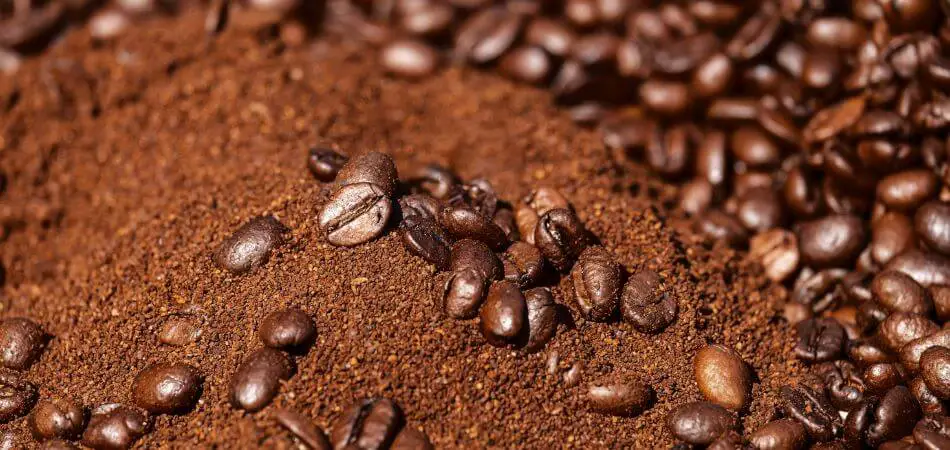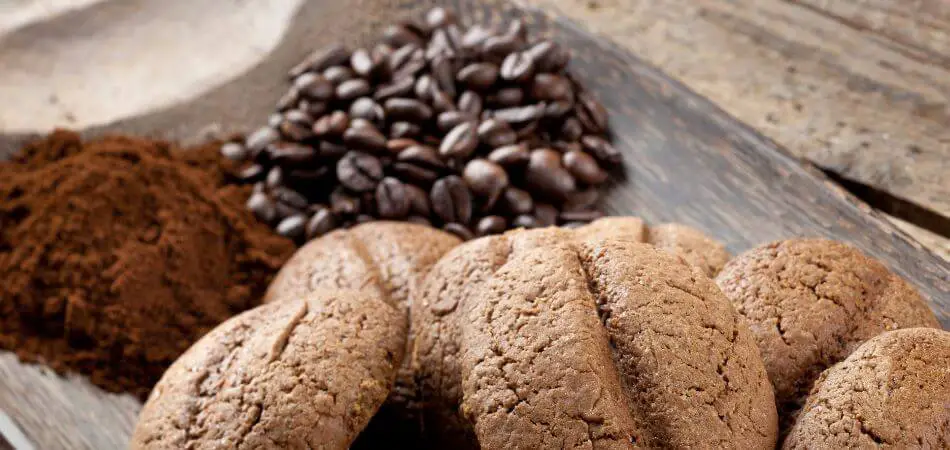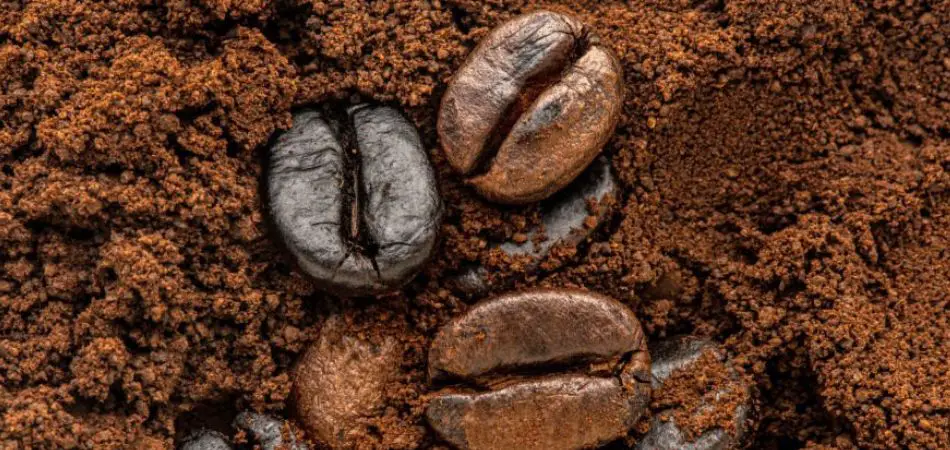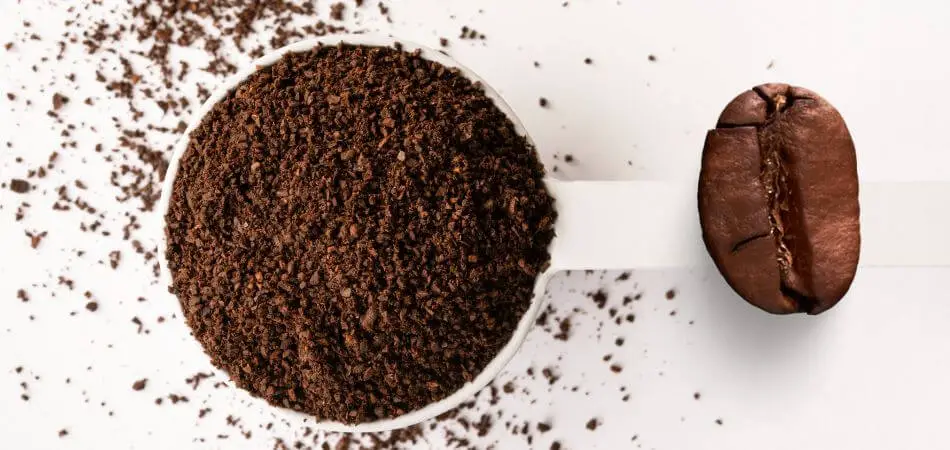Ground vs. Whole Bean Coffee: Which Should You Choose?
Do you ever stand in the coffee aisle, staring at bags of ground vs whole bean coffee, wondering which one is better? You’re not alone. This small decision can make a huge difference in your morning brew—impacting flavor, freshness, convenience, and even cost.
Some coffee lovers swear by whole beans for their richer taste, while others prefer pre-ground coffee for its quick and easy preparation. But which one is right for you?
In this guide, we’ll break down:
✅ The key differences between ground and whole bean coffee
✅ Which tastes better (and why)
✅ Who should choose which (based on lifestyle & preferences)
✅ Pro tips to keep your coffee fresh and flavorful
By the end, you’ll know exactly which type of coffee deserves a spot in your kitchen. Let’s dive in!

What’s the Difference Between Ground and Whole Bean Coffee?
Before we compare them, let’s define each:
Ground Coffee (Pre-Ground)
- What it is: Coffee beans that have already been ground into small particles, ready for brewing.
- Best for: People who want quick, no-fuss coffee.
Pros of Ground Coffee
✔ Convenience – No grinder needed, just scoop and brew.
✔ Faster prep – Ideal for busy mornings.
✔ Widely available – Sold in stores with different grind sizes (though limited).
Cons of Ground Coffee
❌ Loses freshness quickly – Once ground, coffee oxidizes and loses flavor within 1-2 weeks.
❌ Less flavor complexity – Stale coffee tastes flat compared to freshly ground.
❌ Limited grind control – You’re stuck with whatever grind size the manufacturer chose.
Whole Bean Coffee
- What it is: Whole, unground coffee beans that you grind yourself before brewing.
- Best for: Coffee enthusiasts who want maximum flavor and freshness.
Pros of Whole Bean Coffee
✔ Fresher taste – Whole beans retain their oils and aromas much longer.
✔ Customizable grind size – Adjust for espresso, French press, drip, etc.
✔ Longer shelf life – Stays fresh for weeks (or even months) if stored properly.
Cons of Whole Bean Coffee
❌ Requires a grinder – Adds cost and extra prep time.
❌ More effort – Not ideal if you’re in a rush.
❌ Inconsistent grind with cheap grinders – Blade grinders can make uneven particles.
Key Differences at a Glance
| Factor | Ground Coffee | Whole Bean Coffee |
|---|---|---|
| Freshness | Stales quickly (1-2 weeks) | Stays fresh for weeks |
| Convenience | Ready to brew | Needs grinding |
| Flavor | Can taste flat or stale | Richer, more complex |
| Cost | Often cheaper | Slightly pricier (premium beans) |
| Brewing Flexibility | Limited to pre-set grind | Adjustable for any method |
Bottom Line: If you prioritize speed and ease, ground coffee works. If you want the best flavor, whole beans win.

Which Tastes Better: Ground or Whole Bean Coffee?
This is where whole bean coffee shines. Here’s why:
Why Whole Beans Taste Fresher
- Coffee starts losing flavor the second it’s ground (oxidation breaks down oils & aromas).
- Pre-ground coffee sits on shelves (or in your pantry) losing flavor daily.
- Whole beans protect the delicate flavors until you grind them.
Flavor Comparison
| Aspect | Ground Coffee | Whole Bean Coffee |
|---|---|---|
| Aroma | Weaker | Stronger, more vibrant |
| Acidity | Muted | Bright & balanced |
| Body | Thinner | Fuller, richer |
| Aftertaste | Short-lived | Longer, more complex |
Real-World Example:
- Brew two cups—one with freshly ground beans, another with month-old pre-ground.
- The difference is stark: Fresh-ground coffee has more sweetness, aroma, and depth.
When Ground Coffee Can Taste Good
- If you buy small, freshly ground batches (like from a local roaster).
- If you use it within a week and store it in an airtight container.
- For cold brew (since oxidation is slower in cold water).
But in most cases, whole bean coffee wins for flavor.

Who Should Choose Ground or Whole Bean Coffee?
The best choice depends on your lifestyle, priorities, and coffee habits. Let’s break it down:
Choose Ground Coffee If…
✅ You value convenience over perfection – No time to grind? Just scoop and brew.
✅ You don’t own a grinder – Good grinders cost money, and pre-ground skips that investment.
✅ You drink coffee occasionally – If you only brew a cup now and then, freshness matters less.
✅ You’re traveling or at the office – Pre-ground is easier for portable brewing (like a drip machine at work).
Choose Whole Bean Coffee If…
✅ You’re a flavor chaser – Freshness = better taste.
✅ You own (or will buy) a grinder – Even a budget burr grinder improves quality.
✅ You experiment with brewing methods – Different methods (espresso, French press, pour-over) need different grinds.
✅ You buy specialty coffee – If you’re paying for high-quality beans, don’t let them go stale!
Quick Decision Guide
| Your Situation | Best Choice |
|---|---|
| Busy parent, need coffee fast | Ground |
| Home barista, loves espresso | Whole Bean |
| Office worker with a drip machine | Ground |
| Coffee nerd who tastes subtle notes | Whole Bean |
Pro Tip: You don’t have to pick just one! Many coffee lovers keep whole beans at home for weekends and pre-ground at work for convenience.

Brewing Flexibility: Why Grind Size Matters
One of the biggest advantages of whole beans is controlling your grind size. Different brewing methods need different grinds—here’s why:
Ideal Grind Sizes for Popular Brewing Methods
| Brew Method | Grind Size | Why It Matters |
|---|---|---|
| Espresso | Extra fine | Fine particles create pressure for a rich, creamy shot. |
| Pour-Over | Medium-fine | Balanced extraction—too coarse = weak, too fine = bitter. |
| French Press | Coarse | Prevents sludge and over-extraction. |
| Cold Brew | Coarse | Slow extraction needs big particles to avoid bitterness. |
The Problem with Pre-Ground Coffee
- Most pre-ground coffee is medium grind (optimized for drip machines).
- If you try to use it for espresso or French press, the results will be off (too weak or too bitter).
- Solution? Whole beans let you adjust for any method.
Real-World Example:
- If you buy pre-ground “espresso” coffee, it might still be too coarse for your machine.
- With whole beans, you can dial in the perfect grind for your equipment.
Cost Comparison: Is Whole Bean Coffee More Expensive?
At first glance, ground coffee seems cheaper—but there’s more to the story.
Upfront Costs
- Ground coffee = Just pay for the coffee.
- Whole bean coffee = Need a grinder ($$).
But long-term? Whole beans can be a better value.
Price Breakdown
| Factor | Ground Coffee | Whole Bean Coffee |
|---|---|---|
| Coffee Cost (per lb) | $8-$12 | $10-$15 (premium brands) |
| Grinder Cost | $0 | $50-$300 (one-time purchase) |
| Freshness Lifespan | 1-2 weeks | 1 month+ (if stored well) |
| Waste | Stale coffee gets thrown out | Fresher = less waste |
Key Insight:
- If you drink coffee daily, whole beans stay fresh longer, meaning less wasted coffee.
- A good grinder lasts years, making the cost per cup negligible over time.
Budget Tip: Start with an affordable burr grinder (like the Baratza Encore) to maximize value.
Pro Tips for Keeping Coffee Fresh (Ground or Whole Bean)
No matter which you choose, storage matters. Here’s how to preserve flavor:
For Ground Coffee
- Buy in small batches (only what you’ll use in 1-2 weeks).
- Store in an airtight container (avoid the original bag).
- Keep away from light, heat, and moisture (a cool pantry is best).
For Whole Bean Coffee
- Grind right before brewing (maximizes freshness).
- Use an opaque, airtight container (or the bag with a one-way valve).
- Freeze for long-term storage? Controversial! If you do:
- Divide into small portions.
- Thaw before opening to avoid condensation.
Myth Buster:
- “Refrigerating coffee keeps it fresh” → False! Fridges introduce moisture and odors.
Final Verdict: Which Should You Buy?
Ground Coffee Wins If…
- You prioritize speed and simplicity.
- You don’t want to buy a grinder.
- You drink coffee occasionally.
Whole Bean Coffee Wins If…
- You care about peak flavor and freshness.
- You’re willing to grind right before brewing.
- You enjoy experimenting with different brew methods.
Best of Both Worlds?
- Keep whole beans at home for quality.
- Use pre-ground at work/travel for convenience.
Your Turn!
What’s your go-to—ground or whole bean coffee? Do you notice a big difference in taste? Share your thoughts in the comments!
Frequently Asked Questions
What Is The Difference Between Ground And Whole Bean Coffee?
Ground coffee is pre-ground and ready to brew, while whole bean coffee is not yet ground and needs to be ground before brewing.
Which Type Of Coffee Provides A Fresher Taste – Ground Or Whole Bean?
Whole bean coffee provides a fresher taste as it retains its flavors and aromas better than pre-ground coffee.
Can I Use Ground Coffee Instead Of Whole Bean Coffee?
Yes, you can use ground coffee instead of whole bean coffee, but keep in mind that the taste and freshness may be compromised.
Does Grinding My Coffee Beans Make A Difference In Flavor?
Grinding your own coffee beans allows you to control the grind size, resulting in a more consistent flavor and better extraction.
How Long Does Ground Coffee Stay Fresh Compared To Whole Bean Coffee?
Whole bean coffee stays fresh for a longer period as it preserves its flavors and aromas better than ground coffee, which tends to lose freshness faster.



